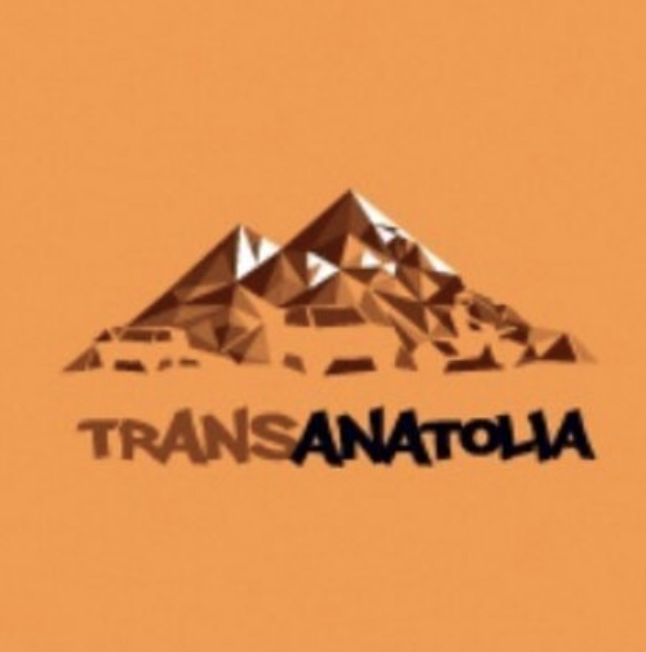A Rally Story: Transanatolia 2021 by Murat Korkmaz during Transanatolia 2021
It was the third day of the Transanatolia Rally. We were riding our motorcycles from Kayseri towards Sivas Yıldız Mountain. As we battled nature and time on challenging tracks, we encountered a particular situation in the middle of the day, right after completing a special stage. While I was changing my roadbook, our fellow racers Arpad and his son Levent came over to us.
Arpad’s condition immediately caught my attention; he looked utterly devastated. In his fifties, Arpad’s face was covered in dust, dirt, and mud—sweat had turned the dust into sticky patches clinging to his skin. Since he couldn’t see up close properly, he had taken off his regular prescription glasses and tried to read the roadbook using his dark-tinted prescription sunglasses—but that didn’t help either. His eyes had turned bloodshot from fatigue and dust. Due to the concentration loss and distraction caused by not being able to read the roadbook, he had suffered several serious falls with his motorcycle and was visibly battered and exhausted. We were only halfway through the third day of a week-long rally, but Arpad looked completely drained.
Levent, his son, who was full of passion for racing despite his young age, turned to me and said, “Murat abi,” visibly worried, “I don’t want my dad to keep racing. I’m going to the bivouac with him. He crashed so many times. He can’t continue like this. I’m afraid he’ll hurt himself. But I can’t convince him; he refuses to stop!”
I approached their bikes to ask Arpad if he was okay. “How are you? Are you alright? What’s going on?” I asked. Arpad, struggling with the blur and discomfort caused by his vision and fatigue, explained that he had been trying to follow his son Levent, but due to the dust and wind, he couldn’t focus and had a hard time keeping up. He had pushed himself incredibly hard just to follow Levent.
At that moment, I didn’t care about my race, time penalties, or falling behind in the rankings. I just wanted to help my friend. I told Arpad, “Come on, let’s ride together, let Levent go ahead. I’ll ride with you, so you don’t have to push yourself.” But Levent objected, knowing his father’s temperament: “No, Murat abi, he won’t stop. He’ll try to follow me no matter what, and he’ll put himself at risk.”
Fortunately, we stopped at a fuel station, and while we continued talking, another idea came to me. I turned to Levent and said, “Levent, you continue the race, and we’ll return to the bivouac with your dad.” Levent looked into my eyes and said, “I will, Murat abi—but you shouldn’t quit the race. Why would you stop? Let us go, you continue racing, I’ll go with my dad.” I replied, “No, you focus on your race. I’ll take your dad back to the bivouac. I’ll ride with him.” I made this decision without caring about finishing that day’s stage or the time and penalty points I’d receive.
Convincing Arpad was difficult. He didn’t want to send Levent off alone. But after my persistent efforts, he agreed, and we sent Levent, filled with racing passion, off to continue the race. Just then, I remembered the spare lenses in my bag. I used contact lenses myself and had spares with me. I asked Arpad for his prescription; it was close to mine. When I asked, “Would you try using lenses if I gave you some?” he said, “I’ve never worn lenses in my life.” I replied, “If you want, I can put them in for you,” and I inserted the lenses into both his eyes.
Suddenly, Arpad’s world lit up! Just like in old Turkish movies, he started shouting joyfully, “I can see! I can see!” Physically, he might not have seen perfectly yet, but the lenses had seemingly given him back the world. Overflowing with joy, he kept shouting, “I can see! I can see!” Even to the point of blurting out silly things like, “Actually, I can’t see, but I can see! I feel like I’m tricking people!” He didn’t know how to thank me enough.
Then I realised the root of their exhaustion: poor nutrition. They hadn’t been getting enough water, vitamins, or minerals. They only had a couple of effervescent tablets, but those weren’t enough.
After I gave up on the race, we made several stops and eventually reached the bivouac. I helped Arpad rest and recover. Once we arrived, I gave them enough vitamins, minerals, powders, salt tablets—whatever they might need—for the remainder of the rally, taken from our team’s supplies. I even gifted a box of daily lenses.
The next morning, when we arrived at the start line, Arpad was like a new man. He was flying with happiness! Full of energy, cheerful, and in high spirits. He had my lenses in his eyes, and his tinted goggles on top. He had also started taking the vitamins and minerals. The worlds of both father and son had changed.
Throughout the race, whenever we crossed paths, I could see the same happiness in them. Thanks to all this, Arpad was able to complete the rally without any further issues or danger. I had fallen behind in the rankings due to the time lost—but I didn’t care at all. Seeing them like that gave me more joy and satisfaction than winning any race ever could. Our already-strong friendship became even stronger after this incident, and it became an unforgettable memory for me.
Discover more from Thinking One More Mile
Subscribe to get the latest posts sent to your email.
